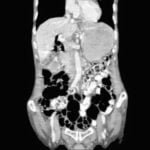When You Notice Blood in Stools: What It Means and What to Do
Finding blood in your stool can be worrying. Sometimes it looks bright red on toilet paper or in the bowl. Other times, it may make the stool appear dark or tarry. Doctors call this rectal bleeding. While it can be due to something minor, like piles (haemorrhoids), it may also be a sign of a more serious condition. That is why blood in stools should never be ignored.
What Can Cause Blood in Stools?
- Haemorrhoids (piles): Swollen veins around the back passage are the most common cause. They often cause bright red bleeding, itching, or discomfort.
- Anal fissures: Small tears in the lining of the anus, often due to constipation, can cause sharp pain and streaks of blood.
- Diverticular disease: Small pouches in the bowel wall can sometimes bleed.
- Polyps: Small growths inside the bowel, which are usually harmless, but some can develop into cancer over time.
- Bowel cancer: One of the most important causes to rule out, especially in people over 50, or if bleeding is persistent.
- Inflammatory bowel disease (IBD): Conditions like ulcerative colitis and Crohn’s disease can cause bleeding along with diarrhoea and abdominal pain.
- Stomach or upper gut bleeding: This may cause black, tar-like stools rather than red blood.

How Can You Lower the Risk?
Some causes cannot be fully prevented, but healthy habits can reduce your chances of bowel problems:
- Eat plenty of fibre: Whole grains, fruit, and vegetables help prevent constipation and straining.
- Stay hydrated: Drink enough fluids daily to keep stools soft.
- Be physically active: Regular exercise supports healthy bowel movements.
- Avoid smoking and excess alcohol: Both can increase the risk of bowel disease and cancer.
- Go for bowel screening: Many countries offer stool tests or colonoscopy from age 50 or earlier if you have a family history.
- Manage constipation early: Avoid pushing and straining, which can lead to piles and fissures.
What Should You Do if You Notice Blood in Stools?
Do not dismiss it, even if you suspect piles. Always get it checked, especially if:
- The bleeding is heavy or keeps coming back.
- You also have a change in bowel habit (such as persistent diarrhoea or constipation).
- You notice unexplained weight loss, tiredness, or abdominal pain.
- You are over 50 and this is the first time you notice bleeding.
Tests may include:
- A stool test to check for hidden blood.
- A physical examination of the back passage.
- A colonoscopy (camera test) to look at the bowel lining.
- Blood tests to check for anaemia.
Treatment depends on the cause:
- Piles and fissures often improve with creams, stool softeners, and lifestyle changes.
- Diverticular disease may need antibiotics or surgery in severe cases.
- Polyps can be removed during colonoscopy.
- Inflammatory bowel disease may need specialist medication.
- Bowel cancer requires prompt referral and treatment, where early detection gives the best outcome.
Key Message
Blood in stools is not always serious—but it should never be ignored. Sometimes the cause is simple and treatable, but it can also be an early warning of bowel cancer. If you notice blood, speak to your doctor promptly. Early action gives peace of mind and, if needed, can save lives.
Join the mailing list!
Get the latest articles delivered right to your inbox!

